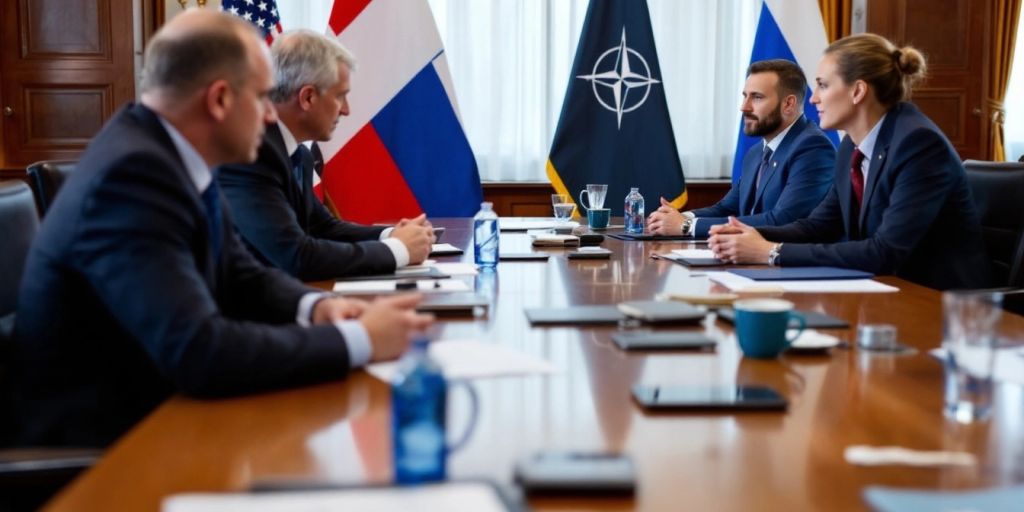As Croatia grapples with internal disputes regarding its involvement in NATO’s Assistance and Training program for Ukraine, NATO’s Acting Deputy Secretary General, Boris Ruge, has stepped in to advocate for Croatian participation. This visit comes amid a political standoff between Prime Minister Andrej Plenkovic and President Zoran Milanovic, who have differing views on the country’s military commitments.
Key Takeaways
- NATO’s Boris Ruge visits Zagreb to discuss Croatia’s participation in the NSATU program.
- Prime Minister Plenkovic seeks parliamentary support to override President Milanovic’s veto.
- Croatia plans to supply Ukraine with 30 tanks and infantry fighting vehicles.
Background of the Dispute
The debate over Croatia’s involvement in NATO’s Security Assistance and Training for Ukraine (NSATU) has intensified in recent weeks. Prime Minister Plenkovic has been pushing for Croatian soldiers to participate in the program, while President Milanovic has expressed concerns about potential direct involvement in the conflict with Russia.
Milanovic’s stance has led to a political impasse, with the President allowing Croatian troops to serve in foreign missions but excluding NSATU. In response, Plenkovic is attempting to rally support from opposition parties to secure a two-thirds majority in parliament to proceed with the program.
NATO’s Position
During his visit, Ruge emphasized that NATO is not a party to the conflict and that supporting Ukraine is crucial for maintaining regional security. He stated, "We are helping [Ukraine] to maintain its sovereignty for the purpose of security," highlighting the strategic importance of the Western Balkans for NATO.
Ruge’s visit included a session with the Croatian parliament’s Foreign Affairs Committee, where he aimed to provide information to lawmakers. However, the opposition parties, particularly the Social Democratic Party (SDP), have indicated they will boycott the session, complicating efforts to build consensus.
Military Support for Ukraine
In a related development, Croatia has committed to supplying Ukraine with military equipment, including 30 main battle tanks and 30 infantry fighting vehicles. This agreement, announced by German Defense Minister Boris Pistorius, underscores Croatia’s role in supporting Ukraine amid ongoing tensions with Russia.
The tanks and vehicles, primarily Yugoslav-made models, are expected to be delivered before the end of the year. This military support is part of a broader effort to enhance Croatia’s own military capabilities, with plans to procure advanced Leopard 2A8 tanks from Germany.
Political Implications
The internal dispute over NATO’s program and military support for Ukraine has significant political implications in Croatia. With presidential elections approaching, the differing views of Plenkovic and Milanovic are likely to influence voter sentiment. Milanovic’s critics accuse him of being pro-Russian, while Plenkovic’s government faces challenges in securing parliamentary support for its initiatives.
As the situation unfolds, NATO’s involvement in Croatia’s internal disputes highlights the complexities of international military commitments and the delicate balance of domestic politics in the face of global security challenges.






